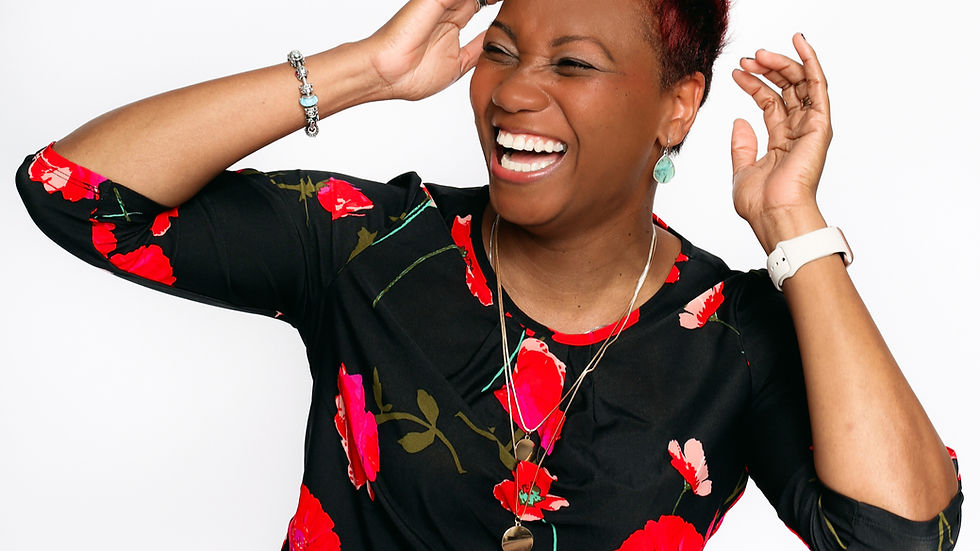Resilience & Identity: I Didn’t Know What My Name Meant—So I Built a Life That Would Give It Meaning
- Patlee Creary

- Jun 20, 2025
- 4 min read
Updated: Aug 17, 2025

Let me tell you a story—not just about a business, but about a return.
You see, Reyou means coming back to yourself. It’s the quiet homecoming after years of doing, pushing, and proving—through degrees, parenting, marriage, careers, and interpersonal relationships. It’s peeling away everything that was expected of me. Finally, I could ask: Who am I really? Who was I before the pressures of the world turned me inside out?
Names, Resilience and Identity
I didn’t always have this clarity. In fact, I didn’t even always feel comfortable with my name. Patlee is unusual. It’s not quite Jamaican and not quite familiar. It is often misspelled, mispronounced, and misunderstood. If there was ever a story behind it, no one told me. But names, like people, gather meaning over time. They carry the weight of how they’re used, where they’ve been, and who speaks them aloud.
I had a complicated relationship with my name. Since completing my PhD in Peace and Conflict Studies in 2018, I’ve grown to love how my name encapsulates all of me: the military officer and administrator I was, the academic I became, and the woman I’m still discovering.
Professionally, I go by Dr. Patlee Creary. But my friends and community? They call me Patlee. If we ever meet, I might start with the title—just until I know you’ll speak my name with the care (and correct pronunciation) it deserves.
I was born in Jamaica. I served as a military officer in the Jamaica Defence Force. In 2010, I moved to Canada with my husband and daughter. My early career was built in human resources, policy development, occupational health and safety, and administration. I earned my Bachelor of Science in International Relations and Public Administration from the University of the West Indies. I then completed a Master’s in Political Studies at the University of Manitoba. But even with those accomplishments, I didn’t yet know how to name what I felt inside.
That knowing came later when everything I thought I knew about myself began to unravel.
In 2011, with my 18-month-old daughter in tow, I returned to university for my PhD. The following year, I gave birth to my second daughter and took time away from academia. In that pause—between the doing and the being—I began to listen. I noticed the overwhelm, the anxiety, and the creeping depression. I questioned who I was in this new life. Was I a skilled professional? A mother? A Jamaican? A Canadian? A Black woman trying to belong in spaces never designed for her?
Eventually, the answer emerged: I am human.
From Academic to Entrepreneur
My doctoral research explored storytelling, trauma, conflict, and lived experiences. I interviewed Jamaican and Canadian soldiers and led a microstudy on highly educated immigrant women in Winnipeg. Through these stories—including my own—I began to see how identity, mental health, and narrative are deeply entangled. We are shaped not only by events but also by the stories we tell to survive them.
From immigrant women, I learned how isolating and emotionally taxing resettlement in a new country can be. From soldiers, I learned how stories can reframe pain, reshape conflict, and become tools for peace. And from within myself, I discovered something deeper: our stories, when tended with care, can bring us home.
That was the seed of Reyou.
In 2018, I began developing frameworks and tools to help others use mindfulness and narrative to navigate trauma, transition, and chronic stress. I trained in Mindfulness-Based Stress Reduction (MBSR), Mental Health First Aid, the Art of Hosting, and Holding Space. I didn’t want to just tell people to meditate or “think positive.” I aimed to create spaces where people—especially those carrying invisible burdens—could be seen, heard, and gently guided back to their inner strength.
By 2019, I shared these tools in small groups and one-on-one sessions. When the pandemic hit in 2020, I saw that what I’d been building was needed more than ever. That’s when Reyou Mindfulness Collective (formerly Untold Stories Studio) came to life.
Today, Reyou offers a range of trauma-sensitive, culturally grounded services that reflect my own journey and lessons toward resilience and identity. Our services include:
Reclaiming Names and Narratives Through Story
But underneath all of that, Reyou is still what it started as: a place to return to yourself. It’s a space to quiet the noise, challenge the narratives that no longer serve you, and reclaim the parts of you that got buried under all the doing—the degrees, caregiving, pushing through. It’s where you remember that you were always resilient; you just forgot. It's where people who understand this journey are ready to listen, offer comfort, hold space, and guide you in remembering how amazing you truly are.
Now, in 2025, I’m working on my first non-academic book—a memoir titled Confessions of a Recovering Academic. It’s a patchwork of stories about identity, belonging, perfectionism, and rediscovery. Writing it has reminded me how much courage it takes to rewrite your life in your own voice.
That’s what I offer through Reyou. Not quick fixes or polished performances—but real space to be human again.
So, what’s your story? I’d love to hear it.
If you’re navigating a turning point or seeking tools to manage stress, find clarity, or lead with intention, reach out. Reyou is ready to walk with you, so you can return to yourself
About the Author
Dr. Patlee Creary is the founder and lead facilitator at Reyou. Patlee brings over 15 years of experience in adult education, leadership development, conflict transformation, strategic and operations planning, and mental health advocacy to her work with individual and corporate clients. An accomplished author, creative writer, and social science researcher, her work is grounded in lived experience as a Black, immigrant woman navigating academic, entrepreneurial, nonprofit and community leadership spaces.



Comments